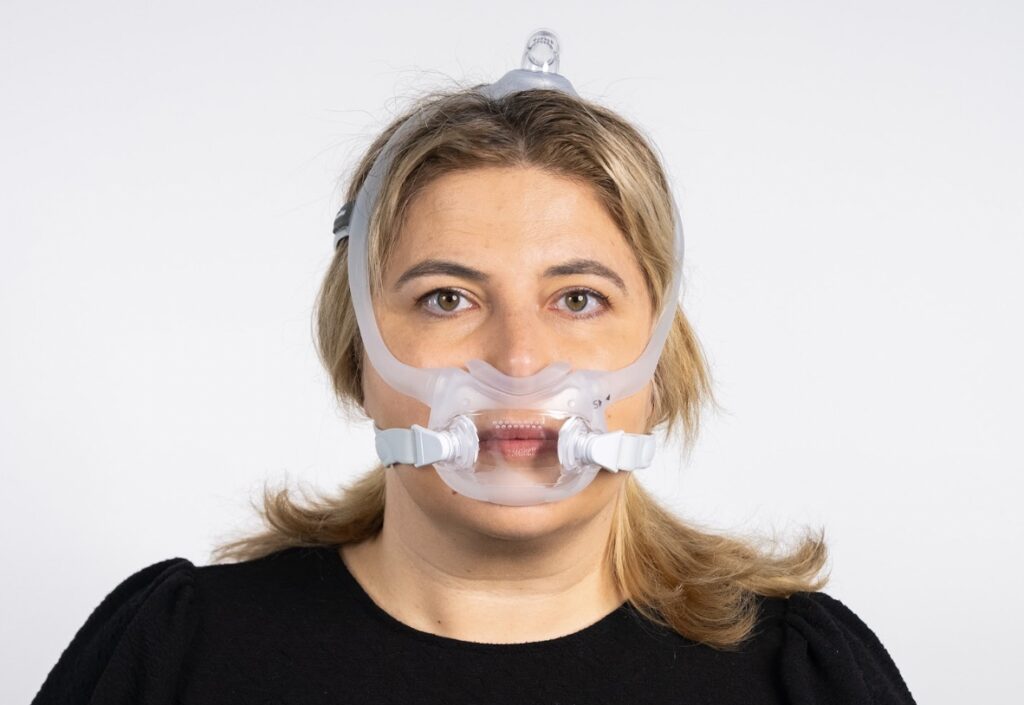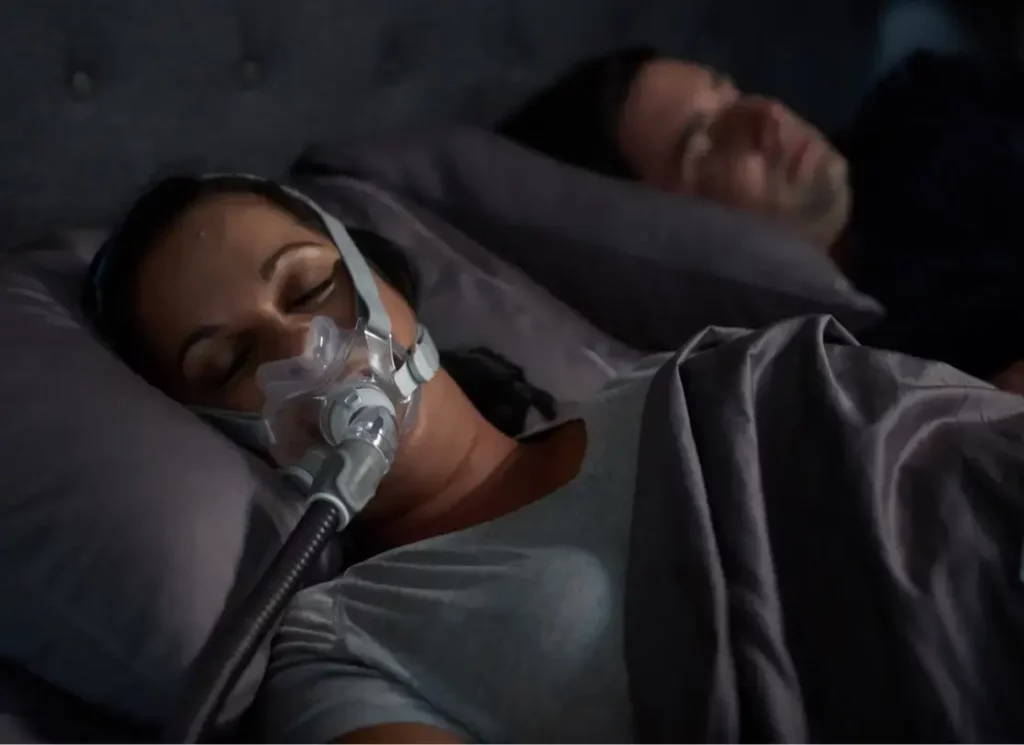Getting a good night’s sleep is essential for overall health, yet millions of people struggle with sleep disorders that disrupt their rest and endanger their wellbeing. One of the most common — and often underdiagnosed — conditions is sleep apnea, a disorder that affects breathing during sleep. Fortunately, modern treatments like CPAP therapy (Continuous Positive Airway Pressure) are helping patients regain healthy sleep and protect their heart health.
Understanding Sleep Apnea: More Than Just Snoring
Many people think sleep apnea is just about loud snoring, but it’s far more serious. Sleep apnea occurs when your airway collapses or becomes blocked during sleep, causing repeated pauses in breathing. These pauses can last from a few seconds to a minute, happening dozens or even hundreds of times per night.
When this happens, your body experiences oxygen deprivation, triggering a stress response that increases blood pressure and puts significant strain on your heart. Over time, untreated sleep apnea can lead to serious complications, including heart disease, high blood pressure, and stroke.
There are two main types of sleep apnea:
- Obstructive Sleep Apnea (OSA): Caused by a physical blockage of the airway, usually from relaxed throat muscles or the tongue.
- Central Sleep Apnea (CSA): A neurological issue where the brain fails to send proper signals to the muscles that control breathing.
Regardless of the type, both can significantly affect your sleep quality and overall health.
The Connection Between Sleep Apnea and Heart Health
Sleep and heart health are deeply intertwined. During healthy sleep, your body slows down, your heart rate decreases, and your blood pressure drops — allowing your cardiovascular system to rest and recover.
However, for people with sleep apnea, breathing interruptions repeatedly jolt the body awake. These frequent oxygen drops cause:
- Increased blood pressure
- Inflammation in blood vessels
- Stress hormone surges (like adrenaline)
- Strain on the heart muscles
According to sleep medicine studies, untreated sleep apnea significantly raises the risk of hypertension, atrial fibrillation, coronary artery disease, and heart failure.
That’s where CPAP therapy comes in — a simple yet life-changing treatment that restores normal breathing and protects your heart.
See more: Benefits of Home Sleep Test Australia for Better Sleep
How CPAP Therapy Works
A CPAP machine delivers a continuous stream of pressurized air through a mask worn over the nose or mouth during sleep. This steady airflow acts as a gentle cushion that keeps your airways open, preventing the throat tissues from collapsing and stopping breathing interruptions.
In simple terms: CPAP therapy ensures your body receives consistent oxygen levels throughout the night, allowing you to experience deep, restorative sleep without constant awakenings.
Benefits of CPAP Therapy:
- Keeps airways open and prevents snoring
- Restores healthy oxygen levels
- Improves heart and lung function
- Reduces daytime fatigue and brain fog
- Enhances mood and energy
- Lowers blood pressure over time
How CPAP Therapy Protects Your Heart
The heart is one of the biggest beneficiaries of effective CPAP therapy. When oxygen levels drop repeatedly during sleep (a common problem in sleep apnea), your heart must work overtime to compensate. Over months or years, this added strain can weaken the heart muscle and lead to complications.

Here’s how CPAP therapy helps prevent heart disease and other issues:
- Improves Oxygen Flow:
By maintaining constant airflow, CPAP ensures your body receives steady oxygen, reducing stress on the heart and brain. - Lowers Blood Pressure:
Studies show that consistent CPAP use can significantly reduce both daytime and nighttime blood pressure levels — a major win for cardiovascular health. - Reduces Risk of Arrhythmia:
Sleep apnea often causes irregular heart rhythms (arrhythmias). CPAP helps stabilize breathing and oxygen supply, lowering the risk of atrial fibrillation. - Prevents Heart Failure:
Over time, untreated sleep apnea can lead to structural changes in the heart. CPAP therapy reduces this risk by easing the heart’s workload during sleep. - Promotes Restful, Restorative Sleep:
Healthy sleep supports your immune system, hormones, and metabolism — all vital for maintaining a strong heart.
Real-World Example: A Success Story
Take Michael, a 52-year-old with high blood pressure and chronic fatigue. After a sleep study, doctors diagnosed him with moderate obstructive sleep apnea. Within weeks of starting CPAP therapy, Michael reported sleeping through the night, feeling more energetic, and noticing his blood pressure stabilizing.
This kind of transformation isn’t rare — many patients experience noticeable improvements in both sleep quality and heart health within the first month of consistent CPAP use.
Getting Started with CPAP Therapy
Starting CPAP therapy can feel intimidating at first, but with the right approach, it quickly becomes part of your nightly routine.
1. Proper Setup and Mask Fit
Ensure your mask fits comfortably and doesn’t leak air. A poorly fitted mask can cause discomfort or reduce the machine’s effectiveness. Work with a sleep medicine specialist to find the right style for your face.
2. Start Slow and Be Consistent
Use your CPAP machine every night — even for naps. It may take a few days to adjust, but consistent use helps your body adapt faster.
3. Keep It Clean
Regular cleaning prevents bacteria buildup and keeps your device running smoothly. Most masks, tubes, and humidifiers can be cleaned with mild soap and warm water.
4. Manage Common Issues
If you experience dryness or irritation, consider using a humidifier or adjusting the air pressure. Many modern CPAP machines come with built-in moisture control and quiet operation for added comfort.
5. Track Your Progress
Some devices allow you to monitor your usage and sleep quality. Sharing this data with your healthcare provider ensures your therapy stays effective.
The Importance of a Sleep Study
If you suspect you have sleep apnea symptoms such as:
- Loud snoring
- Morning headaches
- Gasping or choking during sleep
- Excessive daytime fatigue
- Difficulty concentrating
…you should schedule a sleep study (either at home or in a lab). This test measures your breathing, oxygen levels, and sleep patterns to confirm whether you have sleep apnea — and to determine the best sleep apnea treatments for your condition.
Final Thoughts: Better Sleep, Healthier Heart
Sleep is not just about rest — it’s about recovery. CPAP therapy is one of the most effective tools for restoring that balance, giving your body the oxygen it needs to repair and rejuvenate every night.
By using your CPAP machine consistently, you’re not only improving your sleep quality but also taking a vital step toward protecting your heart health, reducing sleep apnea complications, and reclaiming your energy and focus.
If you or someone you love is struggling with poor sleep or snoring, don’t ignore the signs. Talk to your doctor about sleep apnea treatments and take the first step toward a healthier, more energetic life.

